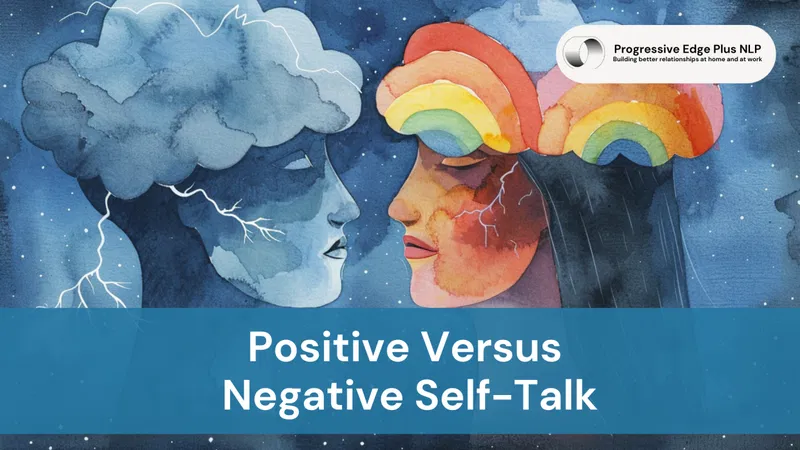If you tune into your self-talk right now, what would you find? Would it be negative? Would it be positive? Or perhaps it would be a combination of both? Self-talk doesn’t have to be one or the other, sometimes it is working through the logic of a situation or attempting to reason through a decision. However, a lot of self-talk comes from the misconceptions we allow to fester over time.
It often starts in childhood, you hear opinions from teachers, parents, coaches, siblings, grandparents, aunts, uncles, and even friends. Unfortunately, it is easier than you may realize to internalize those opinions. Instead of correcting them, they continue in the background until they eventually take root and become part of your self-talk. You believe them, and that is a problem.

Positive Self-Talk
One of the biggest misconceptions about positive self-talk and positive thinking in general is that to succeed you have to bury your head in the sand and ignore life’s unpleasantries. That isn’t the case. Positive self-talk is simply setting yourself up to succeed and be resilient.
It arms you with the tools you need to approach any situation productively and efficiently, especially uncomfortable, or challenging ones. To make things easier, build a collection of messages for positive self-talk – you can fall back on them when you feel negative self-talk creeping in.
Positive self-talk is good for your mental health, helps with stress management, and stronger coping skills to deal with hardships.
So, how can you be more proactive about positive self-talk?
- Start by identifying areas where you tend to slip into negative self-talk, whether it is career-driven, your personal life, or something else. Start with something small and work your way up to dealing with the bigger issues.
- Hold regular check-ins with yourself throughout the day. If you regularly check your self-talk, it becomes easier to steer yourself in a more positive direction.
- It helps if you spend more time with positive people. They tend to be more supportive.
- Practice! The more you practice positive self-talk the easier it is to build a consistent habit. Eventually, it will be second nature – you won’t even need to think about it.

Negative Self-Talk
Negative self-talk takes the form of criticism, despair, and shame. It is when you put yourself down when you make a small mistake. It is the impulse to kick yourself when you are down. It can come from childhood experiences, whether it is a particularly harsh parent or the inability to control your emotions following a difficult event.
Humans are guilty of overly internalizing negative statements you regularly hear growing up, even if you don’t remember taking them so seriously. They burrow their way in, and they take root, and they can haunt you.
Negative self-talk and thinking take a variety of forms – from filtering, which means you magnify the most negative aspects of an event or situation to personalizing, which means you blame yourself every time something goes wrong. There is also catastrophizing, which is when you anticipate the absolute worst in any situation.
When you are consumed by negative self-talk, it is difficult to follow through on good intentions. That outlook impacts your ability to gain perspective. And it can intensify negative emotions, which often results in procrastination and avoidance.

Final Thoughts
For every negative message that crosses your mind, there is a positive message to override and correct it. It isn’t a case of seeking out self-deception, it is learning how to recognize that life isn’t black and white.
Every situation comes with negatives and positives, and you have to learn to recognize the positives just as easily as you do the negatives. You are using positive self-talk to recognize the truth about yourself, and the truth about the situations you face.
The changes won’t occur overnight, it is a process. But, as long as you are consistent and committed to making the change, you will eventually get to where you want to be. It is a process – you have to practice, rehearse, and keep going even when you run into trouble.
When you catch yourself in negative self-talk, don’t punish yourself with more negative self-talk, stop and flip the script. The aim is letting go of criticism and creating more self-acceptance.
Remember you are the only one who gives meaning to your experiences. So why not make them positive and supportive!


